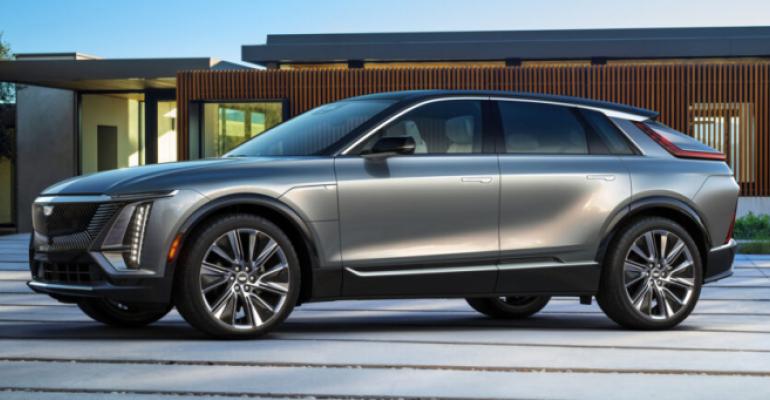General Motors is acting to ensure it has the material needed to support the company’s ambitious plans for battery-electric vehicles.
Underscoring the automaker’s continuing effort to build a North American supply chain supporting battery production, GM says it has reached agreement with Canada Limited, a subsidiary of mining company Vale S.A., for the long-term supply of battery-grade nickel sulfate from Vale’s proposed plant at Bécancour, Québec, Canada.
The agreement secures a significant supply of high-grade nickel sulfate (pictured, below) from a U.S. free-trade partner to support its fast-growing BEV production needs in North America, the automaker says.

“GM’s dedicated cross-functional organization – including experts from global purchasing and supply chain, corporate development, legal, finance and treasury – is strictly focused on building a secure, sustainable, scalable and cost-competitive EV supply chain,” says Doug Parks, GM executive vice president of Global Product Development, Purchasing and Supply Chain.
He says the cross-functional structure already has allowed GM to sign multiple binding agreements to secure the battery raw material to support 1 million units of annual BEV capacity in North America in 2025.
“In addition, Canada continues to play an important role in GM’s all-electric future and the material sourced from Vale will help support EV eligibility for consumer incentives under the new clean-energy tax credits in the U.S.,” says Parks.
Under terms of the agreement, Vale will supply battery-grade nickel sulfate, equivalent to 25,000 metric tons per year of contained nickel, for use in GM’s Ultium battery cathodes, which will power a range of battery-electric vehicles including the Chevrolet Silverado, Blazer and Equinox , the Cadillac Lyriq, the GMC Sierra and the GMC Hummer pickup and SUV (pictured, below).

Nickel sulfate is the chemical compound used in the production of pre-cathode active materials for nickel-based lithium-ion batteries. GM says the amount of contained nickel is sufficient to supply about 350,000 BEVs annually. The first deliveries are expected in second-half 2026.
Vale and GM also have agreed to study ways to partner on advanced-technology development and commercialization pathways to harvest recycled metals.
GM and battery manufacturer Microvast will work together to develop specialized battery separator technology and build a new separator plant in the U.S., which is expected to create hundreds of new jobs.
The work will be supported by a $200 million grant from the U.S. Department of Energy’s Battery Materials Processing and Battery Manufacturing initiative, the automaker says.
Separators are safety-critical battery components that serve to separate the anode from the cathode, allowing for ion transfer. GM will contribute its separator and coating technology to the collaboration with Microvast.
GM and Microvast will jointly develop new separator technology that can help improve vehicle safety, charging and battery life. The technology is designed to enhance thermal stability of batteries and work with nearly all types of lithium-ion cells, including graphite, silicon and lithium-metal anodes and nickel-rich, cobalt-free, lithium iron phosphate-type and high-voltage cathodes.
“This collaboration with Microvast supports our ongoing efforts to develop a North American-focused EV supply chain and help put everyone in an EV,” says Kent Helfrich, GM chief technology officer and vice president of R&D.
“It will also provide us with pioneering separator technology that can be used in future Ultium batteries, and most importantly, supports our continuing commitment to safety.”
In addition, the Energy Dept. has further recognized GM's battery expertise by selecting the company for its Battery500 Consortium, which is being awarded $75 million for a second phase of research.
Led by the Pacific Northwest National Laboratory, the consortium comprises battery experts from national laboratories, academia and industry working to develop more reliable, affordable, longer-range and higher-performance batteries. GM is the only auto manufacturer selected for the consortium and will work with other members to accelerate development of high-energy, rechargeable lithium metal batteries.





